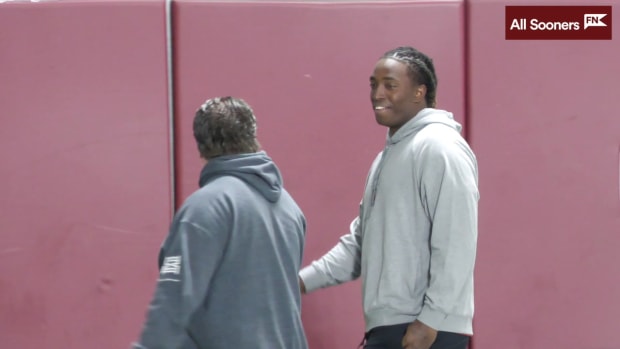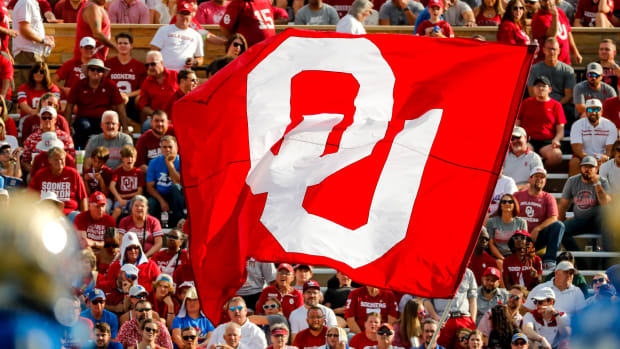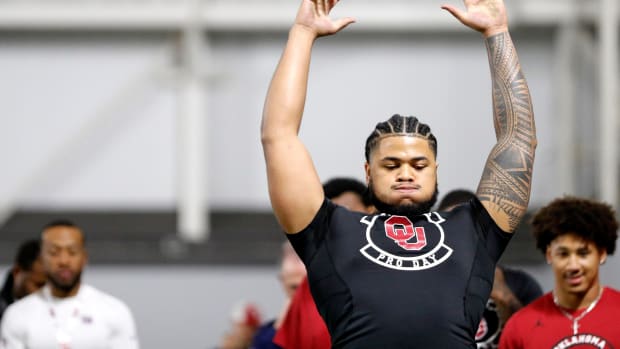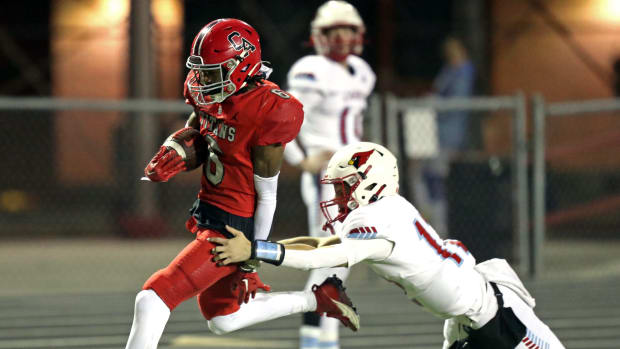ACC, SEC Making Moves, Big 12 Staying Put for Now
The college football news cycle flickers to life seemingly several times an hour — and the immediate future of the game hangs in the balance.
The latest — which will no doubt change by the time you finish reading this — is that Monday, Aug. 3, is shaping up as a D-Day of sorts, the day major decisions will be coming down the pike to determine what football will look like in 2020.
If there is football in 2020, that is.
We’ve known for weeks now that the Big Ten and Pac-12 acted early and independently (some say rashly) when they canceled non-conference football games.
On Wednesday, the waters got a little deeper when the ACC revealed its plans for the fall: games beginning the week of Sept. 7-12, each team playing 11 games — 10 conference, one non-conference — and the top two teams in the standings meeting either Dec. 12 or Dec. 19 for the championship game in Charlotte.
The title game could include independent Notre Dame, which joins the 14-team ACC for the 2020 season and will share TV revenue equally among all 15 teams.
That’s some to-do list to have finished on July 29.
And SI’s Ross Dellenger, citing multiple unnamed sources, reported later Tuesday that the SEC is “moving closer” to a conference-only, 10-game schedule.
Think about the posturing there: the SEC settling on 10 games while the ACC says, “We’ll keep the light on for you” regarding rivalries like Florida-Florida State, South Carolina-Clemson and Georgia-Georgia Tech, plus a handful of other attractive matchups.
SEC athletic directors met Wednesday and agreed to the deal, Dellenger reports, and the league presidents could approve it as early as Thursday.
The SEC traditionally plays eight conference games and four non-conference games, so locking in 10 league opponents is a significant commitment.
That last part, of course, profoundly affects Oklahoma, which has a Sept. 12 home game scheduled against Tennessee. It’s likely that the crowd for that game would be significantly reduced, but with no game at all, it’s the Norman economy — and an expected $8-11 million impact — that will be diminished the most.
The Sept. 5 Baylor-Ole Miss game, the Sept. 12 Texas-LSU game and the Sept. 19 Vanderbilt-Kansas game also would be wiped from the schedule, joining Oregon State-Oklahoma State, TCU-Cal, Iowa State-Iowa, Arizona-Texas Tech, Maryland-West Virginia, as well as Wednesday’s news about West Virginia-Florida State and Boston College-Kansas — 11 Big 12 games in all.
Speaking of the Big 12, Wednesday was business as usual — for now.
The Big 12 confirmed it will stage its virtual media day next Monday — D-Day, remember, Aug. 3 — and reporters from around the nation will ask Big 12 coaches, commissioner Bob Bowlsby and others a few hundred times how they’re coping with the coming uncertainty.
And yet, the Big 12 also could reveal its playbook for the fall that same day, either before, during or after the media event. It wouldn’t be the first time the league scheduled monumental announcements during media day.
Bowlsby told ESPN’s Heather Dinich that Big 12 presidents will be presented with 4-5 scheduling models to consider on Monday.
“We’re going to arm them with all the information they need to make a decision if that is their wish,” Bowlsby said.
The NCAA Board of Governors is scheduled to meet next Tuesday and could make some major decisions regarding the fate of football — and all fall sports.
NCAA president Mark Emmert told ESPN he’s “very concerned” about having a 2020 college football season and said things will be clearer once regular students begin returning to campus for the fall semester — although many universities have said they’ll be open for online study only.
While OU athletic director Joe Castiglione obtained an NCAA waiver to open the season a week earlier — and the NCAA offered a blanket waiver for any other teams wishing to start early — Emmert seems to be taking a wait-and-see approach. He wants to evaluate how professional sports leagues handle things, and he thinks more time is needed for advancements in COVID-19 testing and treatment.
But college football is running out of time. It’s now down to 31 days until the Aug. 29 season openers.
While patience (i.e., delaying the start of the season) may be a virtue, it’s also possible that reducing the number of games and adding open dates throughout the schedule offers a more practical and holistic approach to dealing with every aspect of the crisis.
Ultimately, mid-August seems to be the target date that leagues are hoping to establish as their final stop on the COVID-19 springboard before either taking the plunge or heading back down the ladder.
To get the latest OU posts as they happen, join the SI Sooners Community by clicking “Follow” at the top right corner of the page (mobile users can click the notifications bell icon), and follow SI Sooners on Twitter @All_Sooners.





